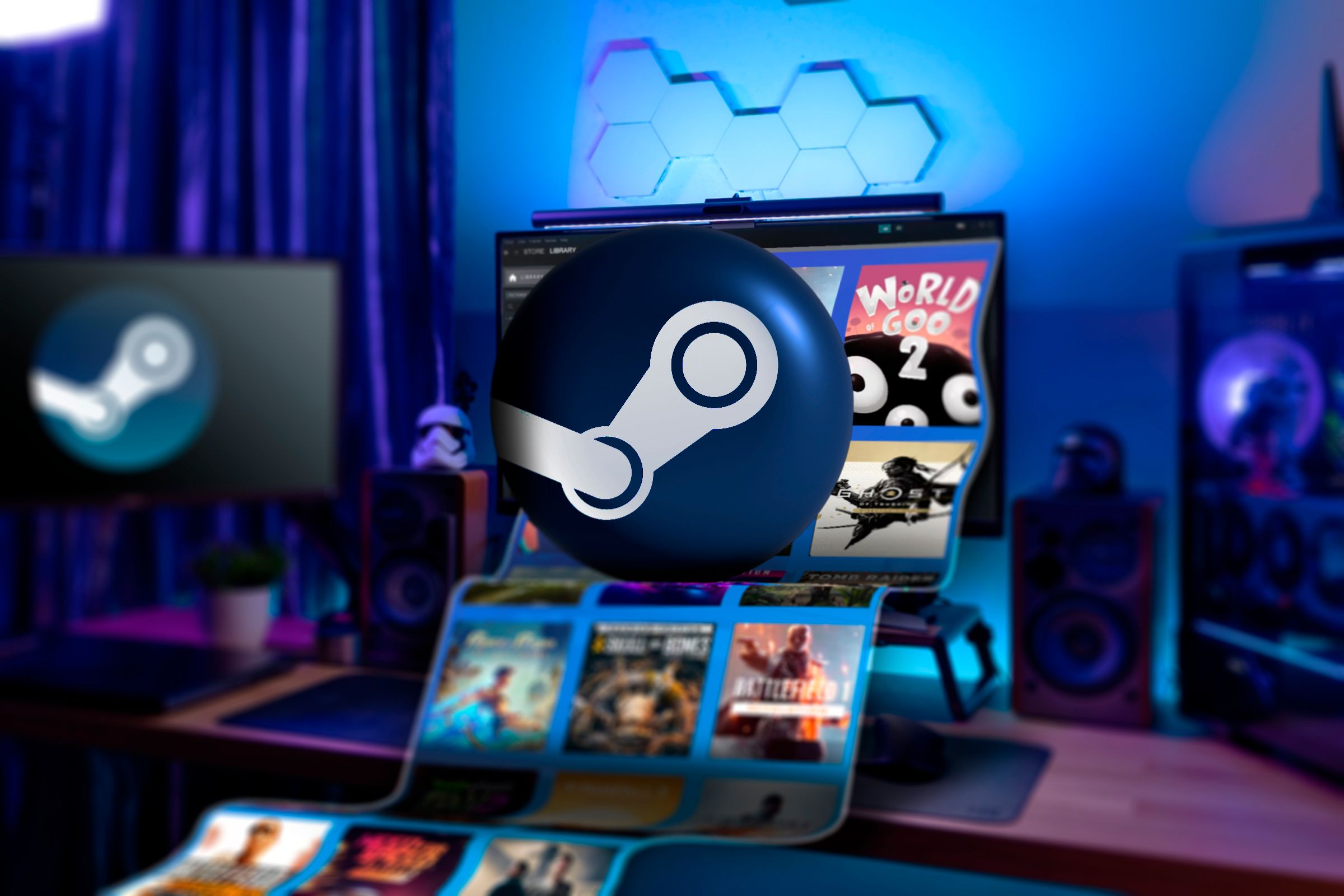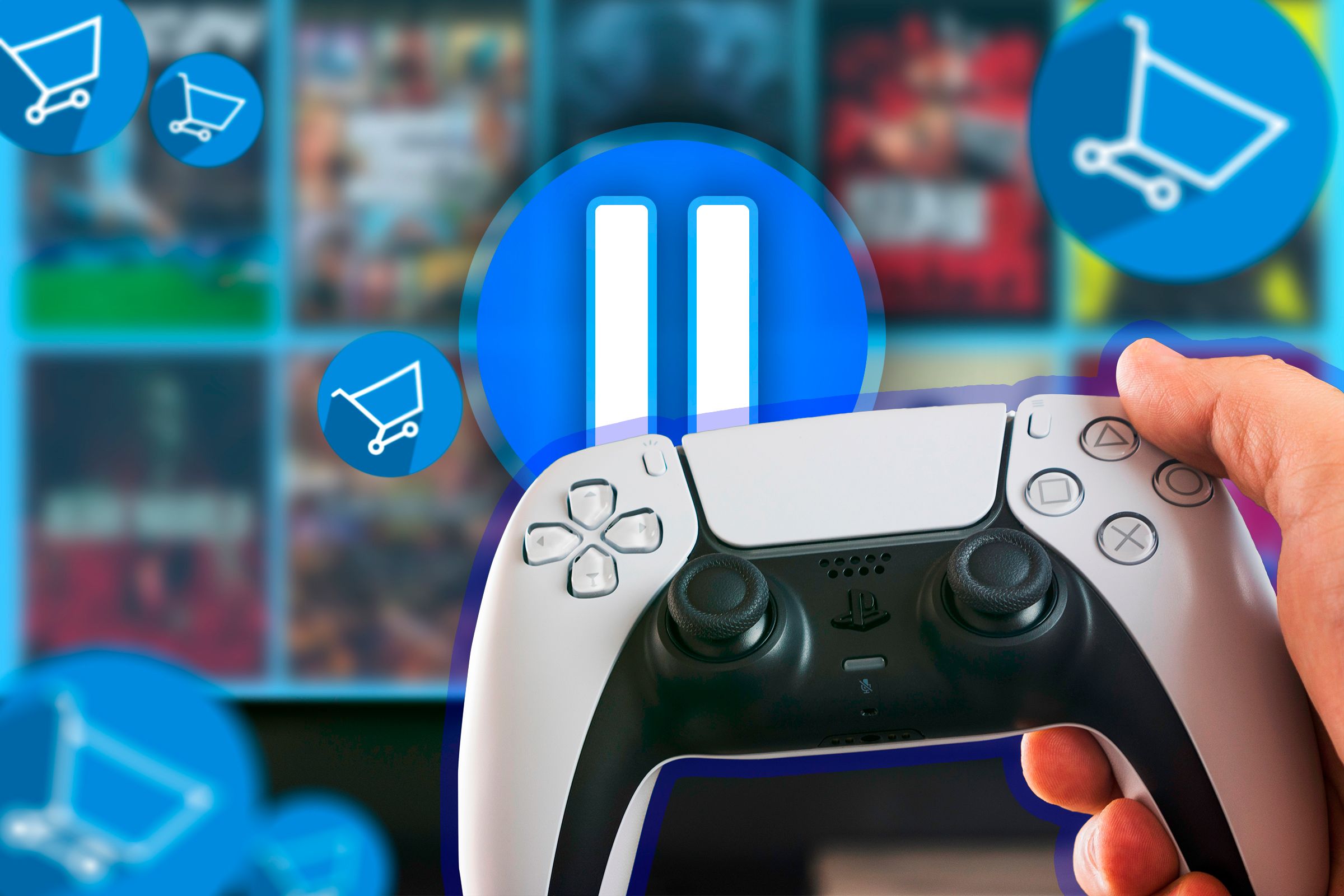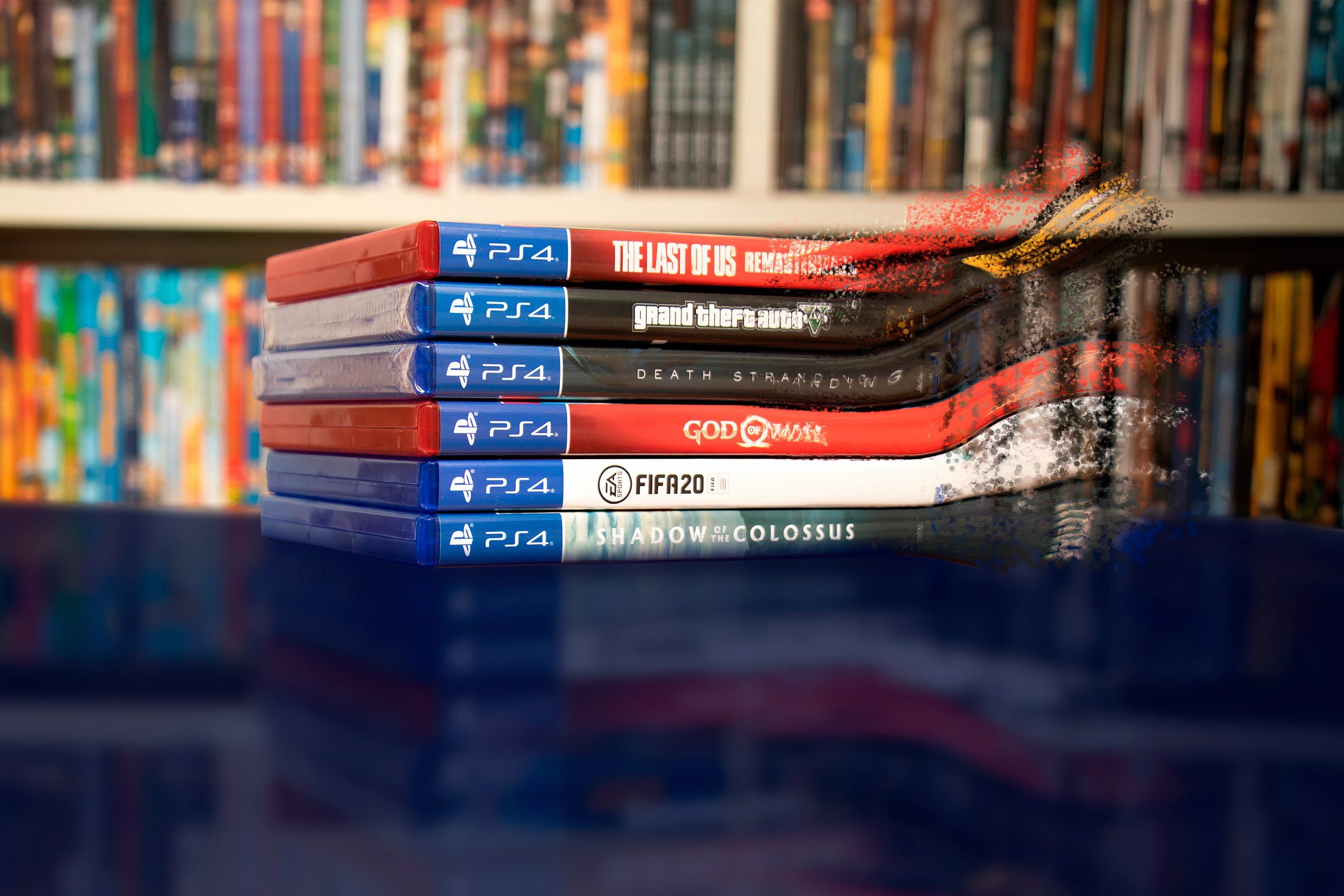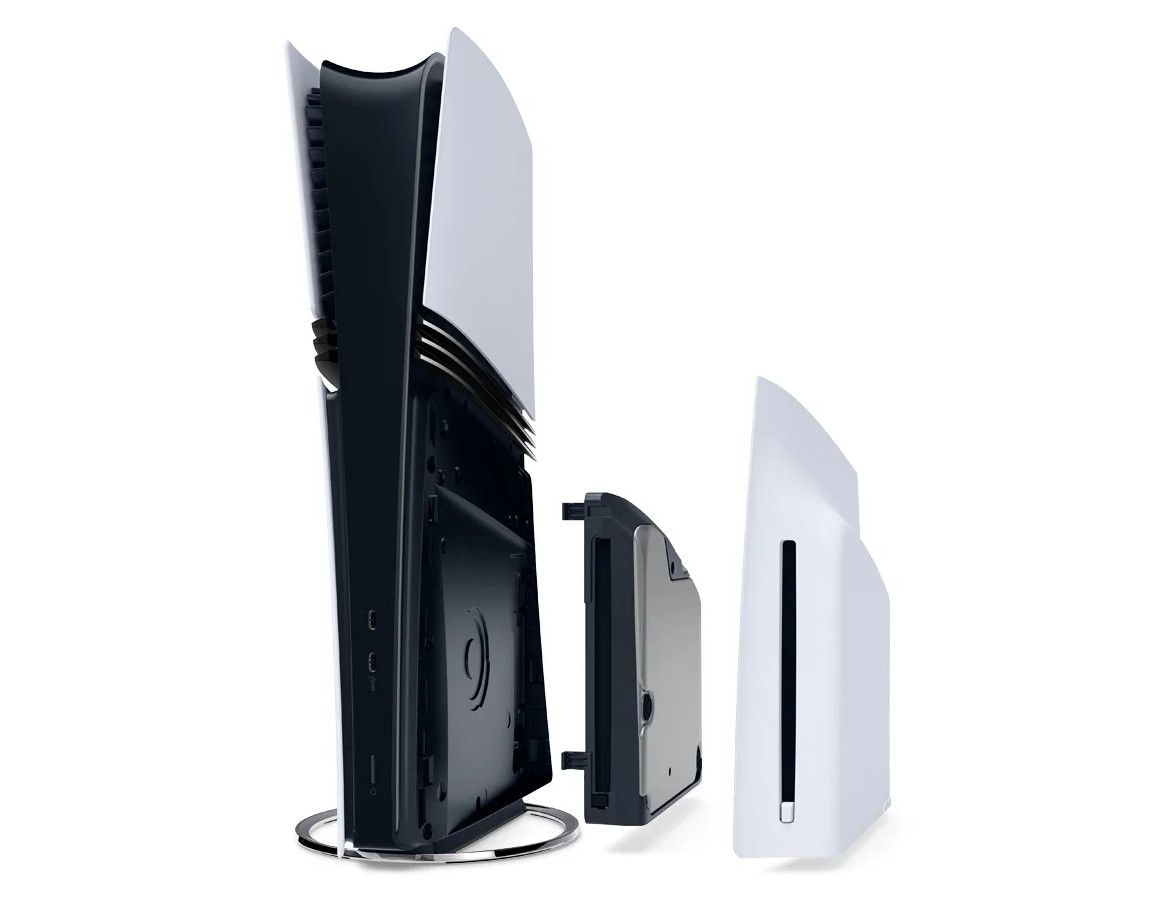Key Takeaways
- Digital gaming doesn’t provide true ownership, as licenses are tied to accounts and can be revoked at any time.
- Multiple options exist for purchasing and sharing physical games, including used copies at reduced prices.
- Physical releases are vital for preserving games and ensuring older titles remain accessible regardless of a reliance on day one patches and post-launch updates.
Console manufacturers and game publishers are already preparing for an all-digital future with digital-only consoles that lack disc drives like the upcoming PlayStation 5 Pro. Despite this, I don’t plan on going all-in on digital gaming just yet.
Digital Ownership Doesn’t Really Exist
There are multiple caveats that come with buying a digital game. For most digital storefronts, you aren’t paying for the game itself, but rather a license that allows you to run the game on your system. Each game license is linked to your store account, meaning you can lose access to your purchased titles if you’re unable to log in to your account.
Furthermore, companies are free to remove game licenses at any time. Digital copies of The Crew and Concord were revoked after the closure of their online servers, leaving buyers unable to download or even boot up the games they had paid for.
While you could argue that there’s no point in keeping unplayable games, the complete removal of these titles is not only a massive blow against video game preservation but also sets a worrying precedent for the future of digital products.
Digital games also come with more restrictions than physical copies. You can’t resell or trade in digital games, and some storefronts prohibit you from transferring your digital library to another person. Even sharing your digital games with friends comes with a few complications, whereas lending your physical games to someone else is as easy as it sounds.
There are a few arguments that can be made against physical games, with one of the most important being that physical discs for modern releases rarely contain the full product. Nearly every physical release on current-gen consoles relies on day-one patches and post-launch updates to fix bugs or add new content. Physical copies of live-service games and other online-only titles can seem even less important, as they are unplayable without an internet connection, regardless of whether you own the physical or digital version.
Despite an increasing dependence on additional downloads, physical games are still worth owning. New releases still include the full game on-disc—apart from rare exceptions like Tony Hawk’s Pro Skater 5—allowing you to install a game without using an internet connection. Plus, physical game cases look great when lined up on a shelf (assuming you have the space to store a collection).
Digital games not only require a consistent online connection to download, but they also rely on a digital infrastructure for future availability. There’s no guarantee that these stores will last forever, meaning you may eventually lose access to your digital library if you haven’t already installed these titles.
There Are More Options for Buying Physical Games
Depending on your preferred system, you may not have many options for buying digital games. PCs may have gone fully digital, but they still allow you to shop from multiple platforms such as Steam, the Epic Games Store, and Itch.io. Stores like GOG also offer DRM-free titles, allowing you to back up your digital games and play without an internet connection.
In contrast, you can’t choose where you buy your digital games on consoles. Digital games for PlayStation, Xbox, and Nintendo consoles are only available through each platform’s respective storefront. You can buy digital codes from other retailers, but these can only be redeemed through your console’s exclusive storefront. Regardless of your preferred platform, owning an all-digital console gives you only one option for buying digital games.
Meanwhile, physical games are still sold at a wide variety of retailers. This not only makes it easier to shop for recent releases at reduced prices but also allows you to purchase used games for fairly low prices. In contrast, digital games rarely adjust their prices (especially on consoles), meaning most digital titles are still being sold at full price while physical copies of the exact same games are significantly cheaper.
Physical Games Are Becoming Harder to Find
Ideally, both physical and digital games will remain playable on future platforms, but new consoles are already pushing towards an all-digital future. The Xbox Series S and PlayStation 5 Digital Edition were the first major consoles to ditch physical media, though physical collectors could still purchase the disc-based alternatives. In contrast, the upcoming PS5 Pro will only be available as a digital console, and it’s introducing a concerning new practice that may become standard for future gaming consoles.
As with the PS5 Slim, the PS5 Pro can run physical discs if you attach a disc drive add-on to the console. However, unlike the PS5 Slim, the disc drive is not offered in any bundles with the Pro model. Instead, the disc drive must be purchased separately for an additional $80.
Beyond adding another expense to the PS5 Pro’s $700 price tag, Sony’s decision to not include the disc drive creates an unnecessary scarcity for the ability to use your physical games. At the time of writing in the wake of the PS5 Pro announcement, the PS5 disc drive is currently sold out in most retailers. Until the add-on is restocked, physical collectors won’t have any way to run their games on the PS5 Pro unless they’re willing to pay extra for a disc drive sold by online scalpers.
It’s possible that Sony neglected to include the disc drive to test the popularity of digital-only consoles for a potential PlayStation 6. Another possibility is that the company underestimated the popularity of physical media. Either way, this practice shouldn’t become a new standard for future consoles.
Physical releases offer a way to maintain proper ownership over your games and preserve them if they’re ever removed from digital stores. However, the limited availability and high price of the disc drive will prevent many PS5 Pro owners from having this luxury, and could eventually lead to physical games being phased out altogether. That may be the intended purpose, but this change would only hurt future consoles.
Even without this added barrier, physical games are already difficult to find. When a game is removed from digital stores (or never received a digital release), physical copies become the only way to access these titles. But physical copies are also a limited resource.
Hit releases like Grand Theft Auto V and The Witcher 3: Wild Hunt print millions of copies, but obscure retro games and modern indie titles are released in smaller quantities, often numbering only thousands or hundreds of copies. That may sound like a lot, but it sells out fast and results in many games becoming extremely rare collectibles.
While modern remasters and remakes help preserve some of these forgotten games, there are plenty of titles that are only playable thanks to physical media. Some of my personal favorites, such as Burnout 3: Takedown and Pokémon SoulSilver, aren’t available in any digital stores, and they wouldn’t be playable at all had they been released as digital-only titles.
It’s for this reason that I’m willing to pay a little extra for physical copies, especially as the future of physical media becomes more uncertain.
Besides looking pretty on a shelf, physical copies allow you to preserve your games long after they’re out of print or delisted from digital stores. If your console dies, or you lose access to an account, you can rely on physical copies. Because of this, the death of physical games would be a disastrous step backward for the industry as a whole.









